| Make
Progress
National
Summit ...2 of 3 > |
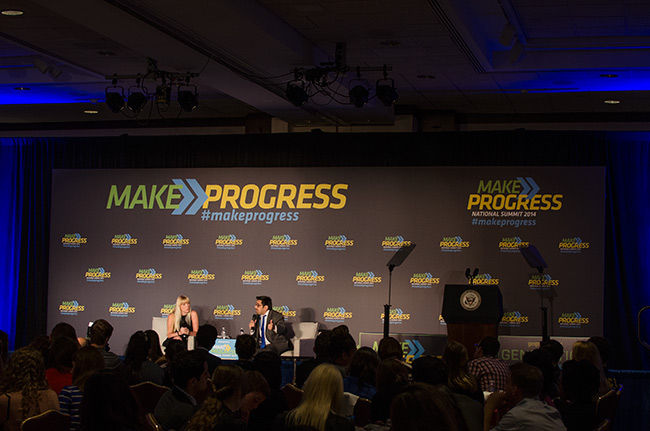 |
| July 16, 2014 - Sarah Ayres, a
policy analyst at the Center for American Progress, and Saket
Soni, executive director of the National Guestworker Alliance and the
New Orleans Workers' Center for Racial Justice, started off the lunch
plenary with a lively discussion on "The Future of Work." Soni
reminded the audience that three decades ago most people thought of
permanent jobs. Now, he said "our basic expectations about work
and
employment have changed;" in a sense people are "hitch-hiking through
the economy." Soni urged the audience to take action to raise
wages and working conditions by bargaining with "the real boss," and he
said the economy should be as flexible for workers as for
employers. These objectives could be accomplished through a
social movement. |
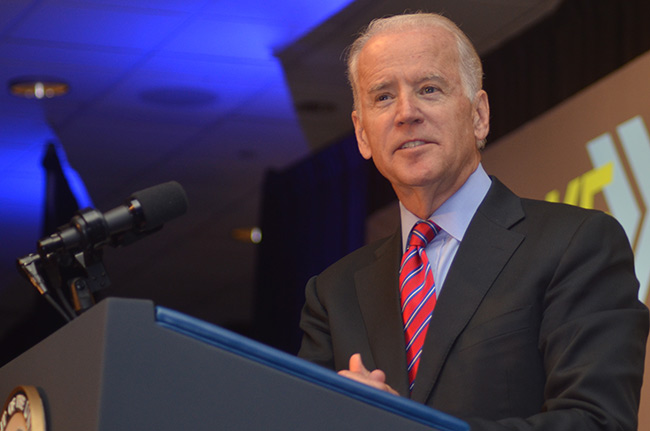 |
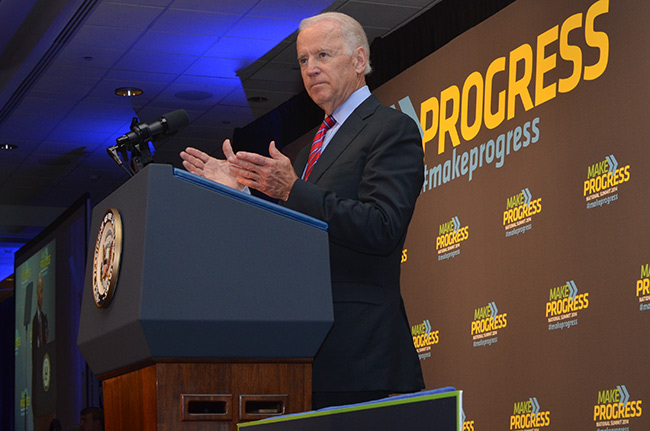 |
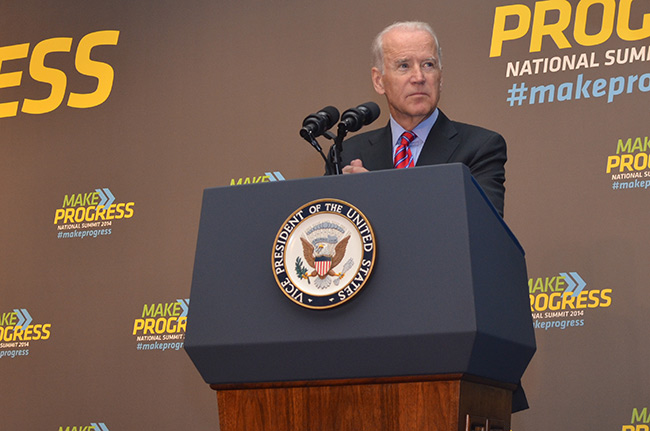 |
| Vice President Joe Biden
delivered a typical Biden
speech--passionate, at times
genuinely moving, at times loud, at times quiet, punctuated with
stories from his
career, and a bit overlong. Biden arrived about 20 minutes late,
and before his speech he was honored with Generation Progress'
"Champion for Change" award. "What is it that we care about; what matters most?" Biden asked, touching upon issues such as equal rights, the epidemic of violence against women, and climate change. Biden said that when it comes to the middle class, "the bargain has been broken." "We need to restore this bargain," he declared. "We are one America," Biden said. He said he did not envy the wealth of "folks at the top," but that they do have a responsibility. "The promise of America has always been social mobility," Biden said. Biden spoke about the "corrosiveness" in politics today and of "personal and vile attacks" made against not only President Obama, but President Bush before him. He told the deeply personal account of losing his wife to a car accident shortly after being elected to the Senate, and how a number of Senators had helped him to get through that difficult time. He recounted assignments given to him by Senate Majority Leader Mike Mansfield, and an exchange with Mansfield about the conservative Sen. Jesse Helms that taught him to "challenge the judgment, but not the motive." "Politics hasn't always been this petty, this personal,' Biden said, arguing that we must strive for consensus. "Our politics have to be as big and as grand as our people," Biden said. Biden spoke of his proudest legislative accomplishment, the Violence Against Women Act, and of sexual assaults on campus. "Anyone who engages in this behavior is a pariah," Biden declared, his voice rising. Going into commencement address mode, Biden urged attendees to "challenge the orthodoxy." He closed with another story, recalling how, after graduating from law school he had started at a "white shoe" law firm in Delaware but, moved by the tumult of the times, he left that for the public defenders office ("the best decision I ever made"); from there Biden segged forward to the day 40 years later when he headed to Washington to be sworn in as vice president. Biden concluded making the point that "how we conduct our debate matters," and emphasizing the need for consensus. [video] In sum, it was a speech as only Joe Biden can deliver it. Later this week, on Thursday, Biden will be speaking at the Netroots Nation conference in Detroit, which is the largest gathering of progressives. |
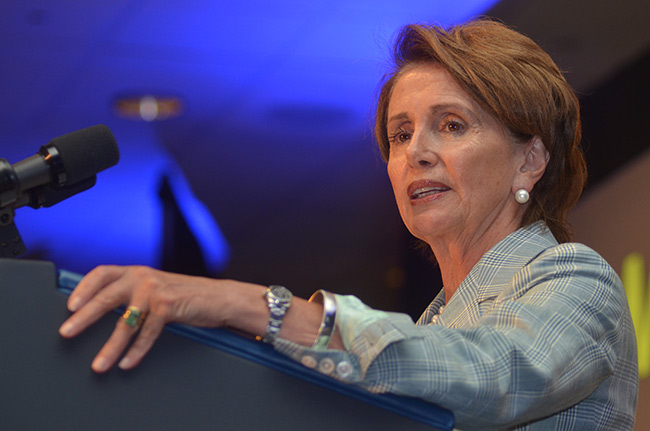 |
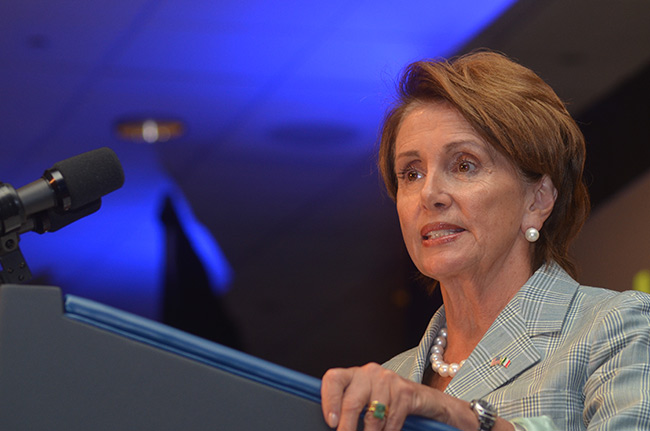 |
| House Democratic Leader Nancy
Pelosi spoke about the "Middle Class Jumpstart" that House Democrats
launched this morning. The plan, clearly geared toward the
November midterm elections, has three elements: a) "Make it in America"
including building America's infrastructure, b) an appeal to women
("when women succeed, America succeeds,") and c) affordable education
to keep America number one. In the afternoon, after breakout panels and networking, Secretary of Labor Thomas Perez delivered closing remarks. |
| next > |

